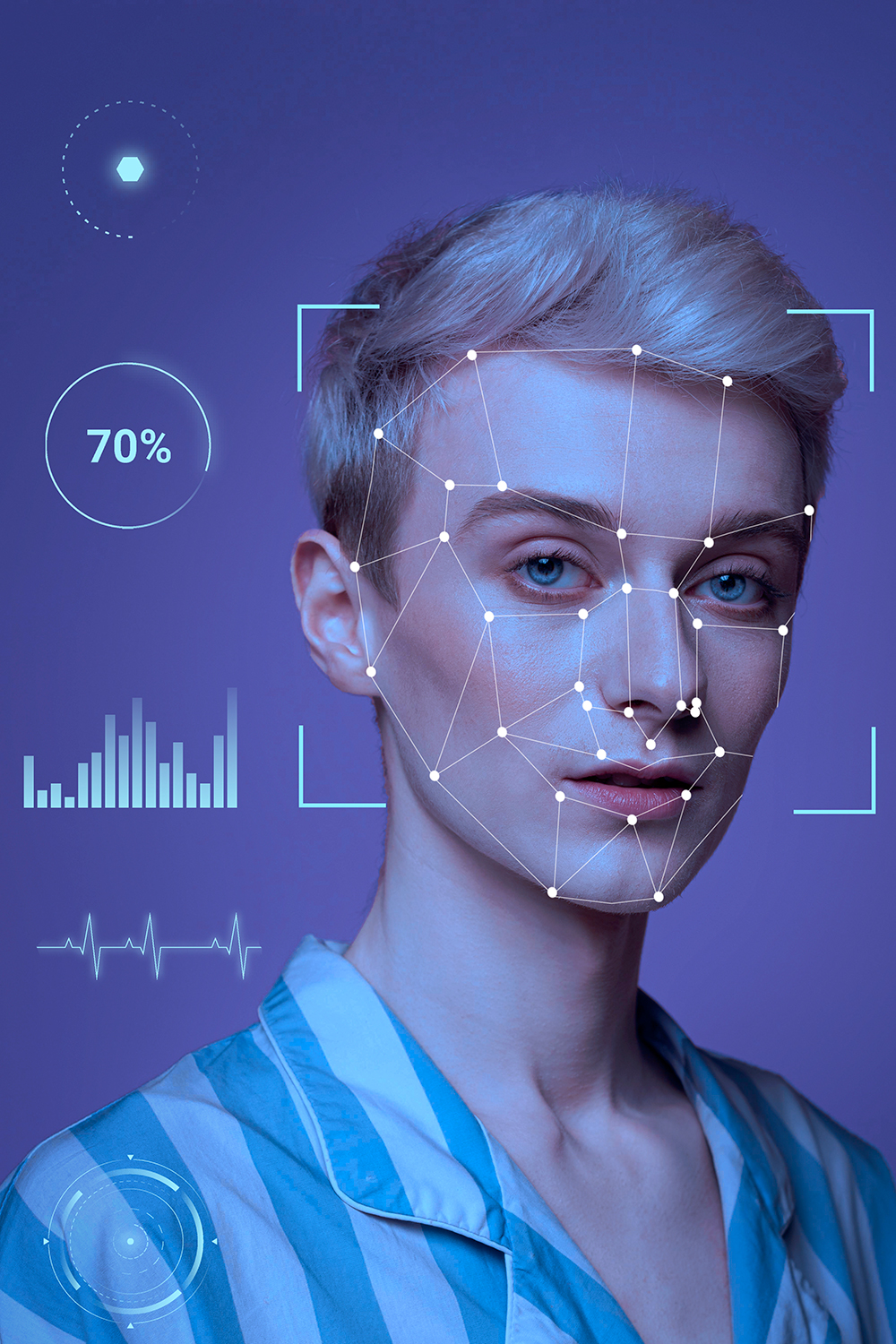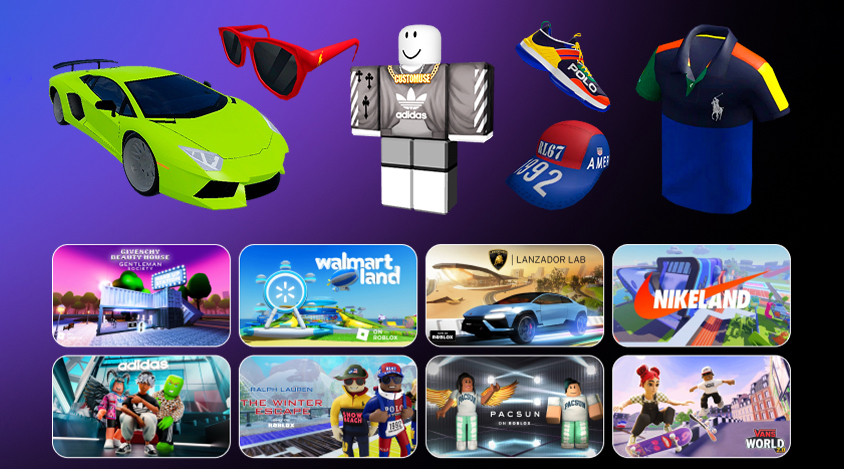The metaverse stands out as the newest realm of exploration, promising unparalleled immersive experiences. But as we stand on the cusp of this virtual revolution, questions arise about its impact on our mental well-being. Can the metaverse be harnessed as a therapeutic tool, offering solace and healing? Or does it pose risks, potentially exacerbating existing mental health issues?
As we delve deeper into this interconnected virtual space, it's crucial to understand its implications on our psyche. In this article, we seek to shed light on the intricate relationship between the metaverse and mental health from the position of a metaverse development company, exploring both its therapeutic potential and the challenges it might present.
The Impact of the Internet and Technology on Mental Health

The digital age, characterized by the rapid proliferation of the internet and groundbreaking technological advancements, has reshaped our lives in dozens of ways. While these tools have facilitated global connectivity, instant communication, and access to vast information reservoirs, they've also brought unique challenges to our mental well-being.
For many, the internet has become a double-edged sword. On one hand, it offers platforms for self-expression, community-building, and support. People with niche interests or those facing stigmatized health issues can find communities that understand and support them. On the other hand, the constant barrage of information, the pressure of social comparison on platforms like Instagram and Facebook, and the addictive nature of instant gratification can lead to feelings of inadequacy, anxiety, and even depression.
Moreover, the omnipresence of screens has affected our sleep patterns, with blue light emissions disrupting our circadian rhythms. The boundary between work and leisure has blurred for many, leading to burnout and chronic stress.
While technology and the internet have undeniably enriched our lives in numerous ways, they also necessitate a new understanding and approach to mental health, ensuring that we harness their benefits without compromising our well-being.
The Perspectives of Metaverse Application for Mental Health
The metaverse, often described as the next phase of the internet, offers a vast, immersive digital universe where users can interact in real-time within three-dimensional spaces. As for mental health, metaverse-based therapy leverages enhanced immersion and upgrades already-known practices. Therefore, when used correctly, psychotherapy in the metaverse expands the range of tools professionals can use to help their clients. Let’s contemplate the most prominent use cases of that.
Firstly, the metaverse can serve as a therapeutic environment. It can help treat conditions and issues like phobias, social anxiety, depression, PTSD, chronic pain, grief, addiction, anger, stress, OCD, insomnia, etc.
The therapeutic community has already adopted VR-powered therapy, and metaverse-based sessions have become a logical continuation of that practice. The main difference between these two approaches lies in the therapist immersion: in VR-powered sessions, only the client is immersed in digital reality, while the metaverse-powered therapy implies that both the client and the therapist meet up in the virtual realm.
Imagine virtual therapy rooms tailored to individual preferences, providing a calming and controlled session setting. Patients could engage in cognitive-behavioral therapy exercises within a virtual world, confronting and managing their fears in a safe, controlled environment.
Furthermore, the metaverse could revolutionize support groups. Individuals from around the world, facing similar challenges, could convene in virtual spaces, sharing experiences and offering support unhindered by geographical constraints. At the same time, patients can stay anonymous and reveal only their avatar names and appearance. This is especially useful for people who suffer from social anxiety, feel extensive shame, or worry about their safety.
However, the metaverse could be not just about therapy. It could also create a platform for mindfulness and meditation, with serene virtual landscapes aiding relaxation and mental rejuvenation. For the population residing in huge megalopolises, the metaverse could become an excellent solution to reconnecting with nature and stabilizing the mental state after stress.

Possible Benefits of the Metaverse on Mental Health
The metaverse, often envisioned as the next evolutionary stage of the internet, is a vast, interconnected digital universe that promises immersive, real-time interactions in three-dimensional spaces. As we stand at the threshold of this new era, the potential applications of the metaverse for mental health are vast. Here are some of them.
1. Virtual Therapy. Traditional therapy sessions are bound by the physical constraints of an office. The metaverse can offer virtual therapy rooms where patients can engage with therapists in reality-like environments tailored to their comfort. This could be particularly beneficial for those with mobility issues or those living in remote areas without easy access to mental health professionals.
2. Support and Community Building. The metaverse can serve as a platform to unite support groups and communities. Individuals from around the world, facing similar challenges, can convene in virtual spaces, sharing experiences, offering support, and fostering a sense of belonging unhindered by geographical constraints.
3. Experiential Learning and Exposure. For those undergoing exposure therapy or cognitive behavioral therapy, the metaverse can simulate controlled environments where patients can confront and manage their fears or phobias, all under the guidance of a professional.
4. Mindfulness and Relaxation. The metaverse isn't just about interaction; it can also be a space for solitude and reflection. Virtual meditation gardens, serene beaches, or tranquil forests can offer users a respite from the stresses of the real world, aiding in relaxation and mental rejuvenation.
5. Education and Training. The immersive nature of the metaverse makes it an ideal platform for educational seminars, workshops, and training sessions related to mental health. Users can engage in interactive modules, gaining insights and tools to manage their mental well-being better.
Possible Negative Effect of NFTs and the Metaverse on Mental Health
While the metaverse offers numerous opportunities, it's essential to recognize potential pitfalls for mental well-being. Prolonged immersion might lead to a blurred line between virtual and reality, causing disconnection from the physical world and potentially fostering feelings of isolation.
The metaverse can also become a space for cyberbullying or harassment, with the immersive nature amplifying the emotional impact on victims. Additionally, the potential for addiction to virtual experiences, like video games or internet addictions, could lead to neglect of real-world responsibilities and relationships. There's also the risk of over-reliance on virtual therapy or support, sidelining the benefits of face-to-face human interaction.
Lastly, the metaverse's vastness might overwhelm some users, leading to anxiety or feelings of insignificance. As with any tool, it's crucial to approach the metaverse with awareness and balance.
Balancing the Advantages and Risks for Mental Health in the Metaverse
As the next digital frontier, the metaverse and mental health present many possibilities. However, like any tool, its benefits come with potential risks. Striking a balance between harnessing its advantages and mitigating its challenges is crucial for ensuring a positive impact on mental well-being.
Awareness and Education
Education is the first line of defense. Users must be informed about the potential therapeutic benefits and the risks associated with prolonged or inappropriate use of the metaverse. Schools, institutions, and organizations should offer programs that educate individuals about the psychological impacts of immersive virtual environments. This includes understanding the signs of addiction, the importance of setting boundaries, and the potential emotional toll of virtual interactions. By fostering a culture of awareness, users can make informed decisions about their engagement with the metaverse.
Regulation and Oversight
Given the immersive nature of the metaverse, there's a heightened potential for misuse. Regulatory bodies and platform developers must collaborate to create guidelines and standards prioritizing user mental health. This could include features limiting continuous use duration, mechanisms to report and address cyberbullying, and age restrictions for specific virtual spaces. Moreover, platforms could be designed with built-in breaks, reminding users to reconnect with the physical world. Ensuring the metaverse is a mental and emotional safe space requires proactive oversight and a commitment to user well-being.
Self-care and Mental Health Strategies
Individual responsibility plays a pivotal role in balancing the pros and cons of the metaverse. Users should be encouraged to adopt self-care strategies, like setting time limits for metaverse usage, ensuring regular breaks, and engaging in physical activities to counterbalance virtual immersion. Maintaining real-world social connections is also essential. Furthermore, users should be equipped with tools and resources to manage potential negative emotions from virtual experiences. This could involve mindfulness exercises, digital detox days, or even seeking a professional.
The metaverse holds immense potential for revolutionizing mental health care, offering innovative therapeutic solutions and global support communities. However, its success hinges on a collective approach that combines mindfulness, user education, regulatory oversight, and individual self-care strategies. By striking this balance, we can ensure that the metaverse serves as a force for good, enhancing mental well-being in this new digital age.
Real-world Cases of Mental Health Benefiting from the Metaverse
The metaverse's application for mental health isn't just theoretical. Some professionals have already started to leverage the technology in their practice. At the same time, neuroscience and healthcare researchers conduct various trials to evaluate the true metaverse potential for aiding patients with certain mental disorders. We have gathered the most exciting examples of how the community has already found a use for converging the mental health and metaverse.
Therapeutic group sessions and mental health therapy services. We have already discussed the metaverse therapy sessions. XRHealth, a virtual clinic, is one of the prominent examples. The therapists and clients create their avatars and gather in 360-degree virtual rooms. The therapists can still initiate exercises requiring physical engagement, e.g., throwing and catching a ball. You can see what such sessions look like here. A startup Plutonic launched the MetaMental platform, where US-based patients can access virtual safe spaces, immersive therapies, peer-to-peer support, talk therapy learning, and group therapy sessions in the metaverse.
Body dysmorphic disorders and eating disorders treatment. According to this group of researchers, the metaverse has the potential to help people suffering from body dysmorphia and anorexia. First, VR and the metaverse powered up the creation of Regenerative Virtual Therapy, a new clinical approach to restructuring the maladaptive bodily representations behind a pathological condition. Second, through the metaverse, the patients can create and adjust avatars resembling themselves, which provides new ways for their treatment. Together, this can help in overcoming the delusionality of appearance-related beliefs.
Metaverse-based social skills training program for children with autism spectrum disorder. In 2022, a group of scientists conducted a pilot trial evaluating the results of the metaverse-based social skill training program on boys 7–12 years old with HFASD (high-functioning autism spectrum disorders). Their results confirmed the program's feasibility, as it was shown to improve social interaction skills, enhance mental health outcomes, reduce emotional and behavioral problems, and alleviate parental psychological distress. At the same time, the researchers stated that the program can overcome the limitation of same-purpose offline training.
As you can see, the metaverse mental health application is not a fleeting trend but a promising research field and a powerful tool for practitioners. Now, we are only at the very beginning of this path, with the narrow mass application of the metaverse for healthcare. But the potential is there, and it pushes therapeutic and scientific communities to explore the metaverse further and use it to the advantage of those who require its help.
Future of Mental Health in the Metaverse

As we stand on the cusp of a new era in digitalization, the metaverse's potential to reshape the landscape of mental healthcare is undeniable. Looking ahead, several metaverse trends and possibilities emerge that could revolutionize how we approach mental well-being.
- Personalized therapeutic environments. The metaverse will allow for the creation of highly personalized therapeutic spaces. Patients could have therapy sessions on virtual beaches, serene forests, or fantastical landscapes tailored to their preferences and therapeutic needs.
- Global mental health communities. Beyond localized support groups, the metaverse will foster global communities where individuals from different cultures and backgrounds can share experiences and coping mechanisms and offer mutual support, breaking down geographical and cultural barriers.
- Integration of AI and data analytics. With advancements in AI, therapists in the metaverse could receive real-time feedback on patients' emotional states, adjusting sessions accordingly. Data analytics might provide insights into broader mental health trends, enabling better diagnostics and more proactive care.
- Ethical considerations and safeguards. Ethical considerations will emerge as the metaverse becomes more integrated into mental health care. Ensuring patient privacy, consent, and security in a virtual realm will become another field for the therapeutic community’s discussion.
- Holistic approaches. The metaverse will likely promote holistic approaches to mental health, combining traditional therapeutic methods with virtual experiences, mindfulness exercises, and even gamified therapeutic activities.
The metaverse promises a more connected, personalized, and innovative approach to mental health. While challenges remain, the potential benefits for patients and practitioners are vast, heralding a new chapter in mental health care.
Create Metaverse Spaces Preserving Mental Health with Program-Ace
Mental well-being has become a hot topic for society nowadays as more and more people are diagnosed with various conditions. The rapid development of the internet and tech are partially to blame. At the same time, technology can also be a medium helping to resolve issues. For example, telemedicine arose as a valuable tool during COVID-19, allowing people to receive adequate healthcare amid strict lockdowns.
Within such conditions, the metaverse is proven to contribute a lot to psychotherapy and self-care. The key to revealing its potential is balancing benefits with risks, providing the psychotherapeutic community with comprehensive, safe, and technically proficient environments.
Program-Ace, a software development company with three decades of experience, stands at the forefront of this mission. We are dedicated to crafting virtual spaces that prioritize and nurture mental health. Whether you're looking to design virtual therapy rooms, mindfulness retreats, or supportive community spaces, our team is equipped to deliver solutions tailored to your vision and the needs of your audience.
Contact us to embark on a journey of creating metaverse spaces that truly make a difference in mental health.























